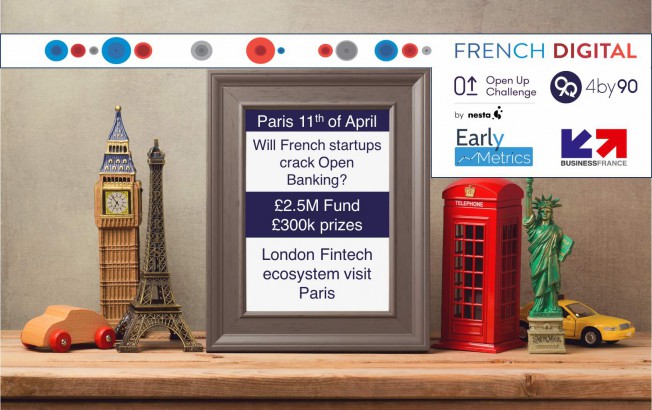
On the 11th of April 2017, 4by90 and French Digital organised with Nesta an event in Paris to discuss the Open Up Challenge and how French and UK startups were approaching Open Banking. The event was supported by Business France and hosted by our partner Early Metrics. If you don’t know about the Open Up Challenge, you should check it out (here) In this short post, I would like to capture some of the points that were discussed during the event as well as highlight a number of questions that ought to be considered. The views expressed here are my own and do not engage the responsibility of anyone mentioned below. I had the privilege to moderate the discussion with an excellent panel of individuals for whom Open Banking really matter for their business. Bruno Van Haetsdaele – CEO et cofondateur…




